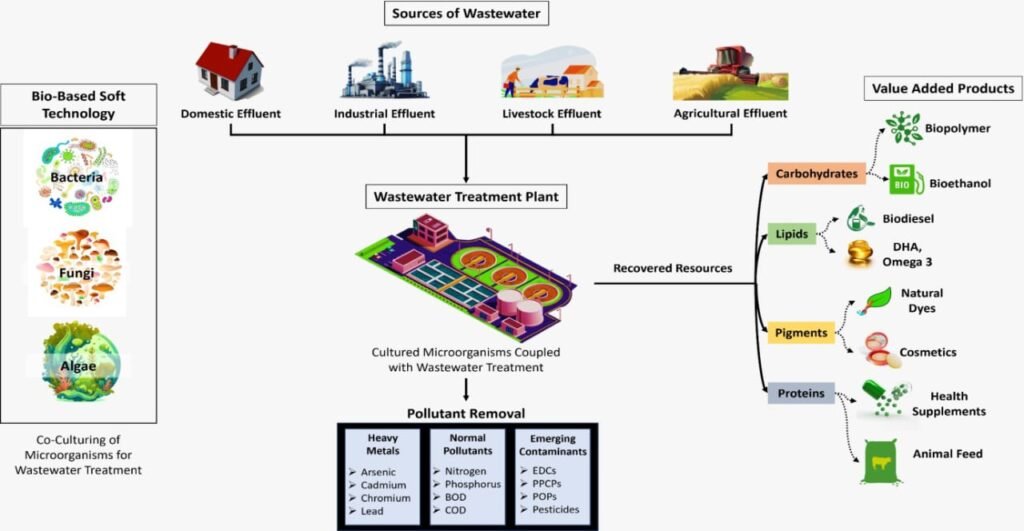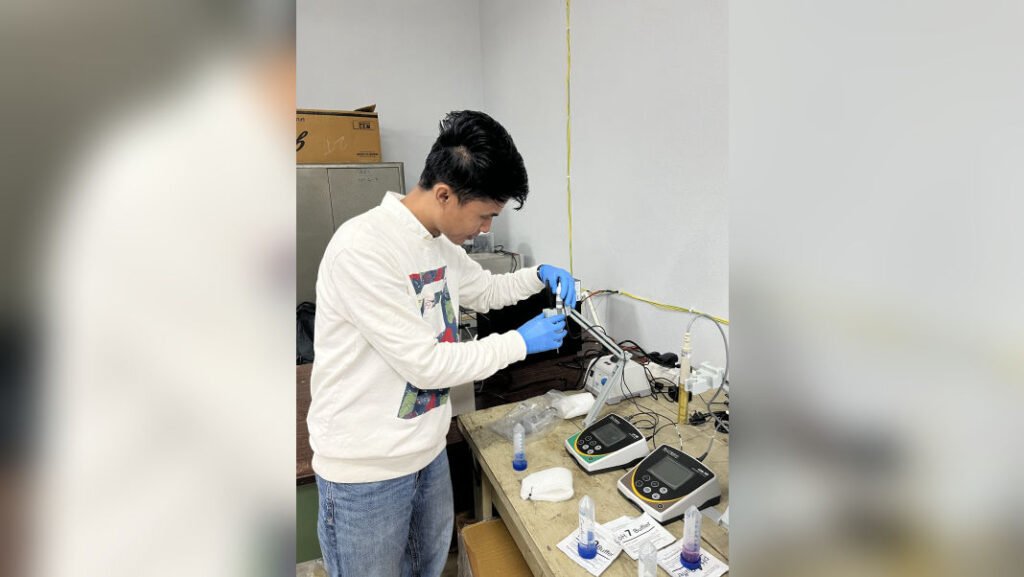
“Instead of viewing wastewater as a problem plaguing Guwahati and its neighbouring areas, we are revolutionizing its management by recognizing it as a rich source of valuable resources,” emphasized Prof. Sharma. “This paradigm shift not only significantly reduces pollution in our water bodies but also bolsters sustainable farming practices and aligns perfectly with India’s national objectives for a cleaner and greener environment.”
The cutting-edge research strategically integrates diverse natural treatment methodologies, including advanced algae-based systems, microbial fuel cells, and constructed wetlands, to maximize treatment efficiency and resource recovery. Furthermore, the research proactively addresses emerging environmental concerns by investigating effective methods for the removal of contemporary pollutants such as microplastics from wastewater streams.
The significant findings of this research have been published in the esteemed international journal Current Opinion in Environmental Science & Health, underscoring its global relevance and impact on the field of sustainable wastewater treatment.
Prof. Jagadish K. Patnaik, Vice Chancellor of Nagaland University, lauded the research, stating, “Traditional wastewater treatment plants effectively remove pollutants but often result in the loss of valuable materials. This pioneering research demonstrates a transformative approach, showcasing how we can simultaneously recover these resources and significantly minimize waste generation, offering a more sustainable model for Guwahati and the nation.”

Currently, the innovative technology has undergone rigorous testing in laboratory settings. The immediate next phase involves real-world implementation through collaborative projects with local communities and industries in and around Guwahati. The research team is committed to establishing small-scale wastewater treatment units, meticulously evaluating their long-term performance, and ensuring their affordability and ease of operation for widespread adoption.
Key Advantages of This Innovative Wastewater Treatment Research:
* Efficiently treats wastewater while simultaneously recovering valuable resources.
* Employs a synergistic combination of natural treatment systems for enhanced performance.
* Proactively addresses future environmental challenges, including microplastic removal.
* Focuses on developing low-cost and practical solutions for real-world application in regions like Guwahati.
This groundbreaking research holds immense potential to revolutionize water treatment practices, making them more environmentally sustainable and resource-efficient, thereby benefiting both the local communities in Guwahati and the broader environment. Nagaland University Pioneers Eco – Friendly Wastewater treatment from a sustainable future in Guwahati and Beyond, presents a paradigm shift in how we approach wastewater treatment, particularly for regions like Guwahati and beyond. By embracing nature-inspired bio-based soft technologies, this innovative method not only offers an eco-friendly and cost-effective solution for producing clean water but also unlocks the potential to recover valuable resources such as nutrients, biofuels, and biogas. This dual benefit of pollution reduction and resource recovery aligns perfectly with the growing need for sustainable practices and a circular economy. As this promising technology transitions from laboratory trials to real-world applications in collaboration with local communities and industries, it holds the key to a greener, more resource-secure future for Guwahati and serves as an inspiring model for effective wastewater management globally.
